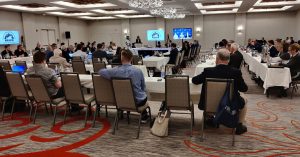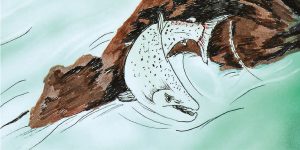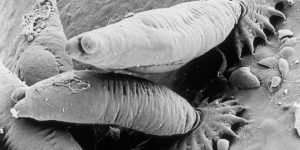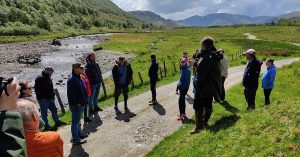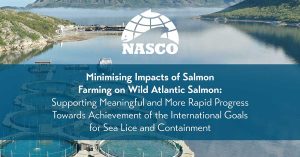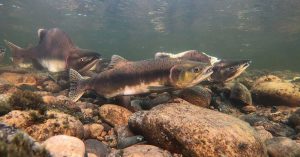Recap: the 2023 Annual Meetings Delegates at the 2023 NASCO Annual Meeting The Canadian Government kindly hosted NASCO’s 2023 Annual Meetings in Moncton, New Brunswick,…
NASCO’s Action in the face of Climate Change Climate change is changing the marine and freshwater ecosystems at an unprecedented rate, with impacts on Atlantic…
NASCO Becomes the First RFMO to Undertake Three Performance Reviews The 2005 UN Resolution on Sustainable Fisheries (UNGA 60/31) encouraged States, through their participation in…
Indigenous Perspectives and Roles in Atlantic Salmon One of the recommendations arising from NASCO’s 2019 IYS Symposium held in Tromsø, Norway, was: ‘Recognizing the importance…
Gyrodactylus salaris The Gyrodactylus salaris (G. salaris) parasite poses a huge threat to Atlantic salmon in rivers where it has been introduced. G. salaris on…
2022 saw NASCO’s first ever hybrid Annual Meetings of its Council, Commissions, Finance and Administration Committee and International Atlantic Salmon Research Board. Representatives of the…
The North Atlantic Salmon Conservation Organization (NASCO) has recognised the adverse impacts of some salmon farming practices and operations on wild Atlantic salmon populations since…
Statement of the Council Regarding Pink Salmon, Oncorhynchus gorbuscha, in the NASCO Convention Area
Statement of the Council Regarding Pink Salmon, Oncorhynchus gorbuscha, in the NASCO Convention Area RECOGNISING that the pink salmon, Oncorhynchus gorbuscha, in the NASCO Convention…
Following protracted negotiations in the West Greenland Commission in 2021 which led to the agreement of the ‘Interim Regulatory Measure for Fishing for Atlantic Salmon…
